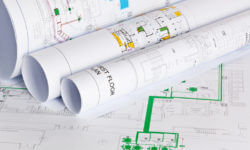Beyond heating and cooling, the role of plumbing and mechanical services are vital in our homes and commercial spaces; we often think about heating and cooling systems as the primary components of indoor comfort. While they undoubtedly play a crucial role, another essential aspect often goes unnoticed: plumbing and mechanical services.
Read more →Restaurants require so many things, great chefs, food prep staff, sous chefs, customers, wait staff, and a fully functional kitchen, including commercial plumbing. Restaurants represent an environment that needs an excellent water supply, adequate drainage, proper ventilation, and energy-efficient appliances. Read on to learn about 5 Reasons Proper Commercial Plumbing is Essential to Restaurants!
Read more →Infrastructure is everywhere, and Data Centers are at the heart of housing computer systems and associated components such as telecommunications and storage systems. Understanding ASHRAE (American Society of Heating, Refrigerating, and Air-Conditioning Engineers) temperature and humidity guidelines for built environments is critical to the success of any data center. Read on to learn about ASHRAE temperature and humidity guidelines.
Read more →Looking for alternatives to HFCs? You’re not alone. A2L refrigerants are growing in popularity around the world.
In 1987, a coalition of nations signed a treaty known as the Montreal Protocol. This agreement led to the banning of refrigerants responsible for the depletion of the ozone layer. Throughout the 1990s, ozone-harming chemicals were phased out in favor of a new chemical: hydrofluorocarbons, or HFCs. While HFCs helped heal the hole in the ozone layer, they have terrible side effects — scientists have discovered that HFCs contribute thousands of times more to global warming than CO2.
The United States Department of Energy has a multitude of different responsibilities, but the organization’s primary responsibilities involve managing the nation’s nuclear infrastructure. As ONE of its many responsibilities, the DOE also creates efficiency standards for HVAC equipment. The newest set of standards, 2023 DOE Efficiency Standards, become effective January 1, 2023. These 2023 DOE Efficiency Standards are based on research conducted by independent entities. The DOE and other organizations provide these researchers with funding so that they can explore ways to optimize energy consumption. DOE standards primarily apply to HVAC equipment manufacturers and installers. However, they can also impact your business in several ways. By voluntarily adhering to these standards, you can save money and improve energy efficiency. Additionally, you may be able to access tax credits by designing a system that complies with 2023 standards. Join us as we examine the latest set of 2023 DOE standards and what they mean for your business.
Read more →Anyone who owns a commercial building knows that ductwork is an integral part of the property’s operations. In order to operate at maximum efficiency, your HVAC ductwork needs to be designed, sized, and installed correctly. Proper duct size is all too often an overlooked feature of commercial HVAC systems. The role that duct sizing and material play in maintaining a safe, comfortable environment should not be underestimated. Having the right size and material for your ducts will maintain comfortable conditions, improve indoor air quality, minimize energy losses, and lower your heating and cooling bills, as well.
Read more →Where are the savings? That’s the theme of the building industry in this post-pandemic era. Many raw materials have increased in price, and construction budgets for commercial and residential high-rises are skyrocketing. This makes it more important than ever to know where the those savings are. These savings sometimes come from the least expected places. One of them is the 179D Energy Tax Deduction. This allows tax savings for measures that increase energy efficiency in buildings through the HVAC system. The 179D Energy Tax Deduction is also known as EPAct. It applies to commercial buildings, and multi-family residential buildings that are four stories or higher (above ground). Owners can expense up to $1.80 per square foot of the cost of improvements that increase energy efficiency.
Read more →When talking about the health and wellbeing of employees or customers within a building, you are referencing the IEQ. IEQ, or Indoor Environmental Quality, includes air quality, lighting, thermal conditions, and ergonomics. Specifically, the effects they have on any occupants of a building. When building or designing a space, it is important to consider IEQ. Proper IEQ strategies protect people’s health, improve quality of life, reduce stress, and prevent potential injuries.
Read more →As we move into summer, more and more businesses are reopening. This is happening across the country. For this article, we are paying particular focus on Maryland, and Washington D.C. However, as more states are looking to reopen, this applies to any commercial business. As COVID-19 restrictions are lifted, people will be returning to work and customers to businesses. So, before you do that, what are the important HVAC systems to check before reopening?
Read more →Depending on the size of the building, it’s not just as simple as having your basic components. Incorporating HVAC equipment in conjunction with a commercial building’s design can have a big impact on energy savings. For this article, we not only want to discuss designing HVAC systems to meet industry standards but also to make them resource and energy-efficient.
Read more →









